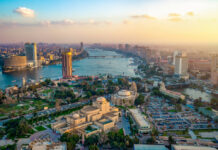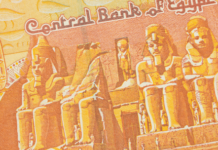Saudi Arabia has set an ambitious target of broad economic reform and diversification by 2030.
The kingdom is strengthening its stock market and bringing efficiencies to banking and payments through financial technology, or FinTech. The biggest transformation will come with the growth of personal savings and cultivation of a culture of personal investment to expand the private finance sector.
The Vision 2030 plan was established in 2016 to help the kingdom adapt to changing global economic trends and lessen its reliance on oil exports. Forging a vibrant, home-grown entrepreneurial economy is a key part of the plan, enshrined in Vision 2030’s Financial Sector Development Program.
Reforms are already bearing fruit. Saudi Arabia’s Stock Exchange, the Tadawul, for instance, has been recognized by leading financial indexes MSCI and FTSE Russell. This provides a strong foundation to bring international finance to the kingdom.
Capital Rich, Savings Poor
Capital markets need investors with cash to provide the liquidity that keeps the market turning. But investors are lacking in Saudi Arabia, where less than half the population had savings in 2018, according to PwC.
Savings are crucial to propelling economic growth. They provide the bank deposits and investment capital that help businesses flourish, create jobs and offer individuals future income security. Therefore, Saudi Arabia has set a target of raising private savings from 6% of household income to 10%.
The capital is there already. The kingdom’s 35 million people account for about half of the Gulf region’s US$1.6 trillion, of which 80% is held by the richest 2.5 million people, 9.2 % of the population.
Petrochemical riches have enabled the state to provide social services, benefits and pensions. But with no incentive to put money aside for retirement or health provisions, people have grown accustomed to spending their disposable income. They also have poor financial literacy skills.
A Need for Change
This approach to financial management will be unsustainable as the world transitions from hydrocarbon-based energy. By unlocking the disposable wealth held by the kingdom’s high net worth individuals (HNWIs), the wealth management and insurance sectors can take on those roles and diversify sources of capital to the country.
Demographically the region is suited to such a makeover. Earners of annual incomes of between US$100,000 and US$5 million have been identified as best suited to digital wealth management tools. In Saudi Arabia, that cohort accounts for about US$1 trillion.
Digital services are already helping. Eight-tenths of respondents to a Deloitte survey last year said they are willing to use FinTech tools. In a Fintech Saudi survey, three quarters said they had used at least one such service. Electronic payments solutions are also in demand in a region that has 97 per cent mobile phone penetration and where cash use is declining.
A survey by additiv, which has been demonstrating the power of FinTech in the region for many years, found that wealthy individuals in the Middle East want a blend of in-person and self-service solutions. They want the benefit of the latest technology to offer automated services and data-fed insights. At the same time, they want to be able to discuss and formulate strategies to meet their own financial goals.
additiv clients are already taking advantage of such a solution through its Hybrid Wealth Manager product. additiv’s embedded finance offering is helping to streamline this by enabling clients to buy financial products within the context of pension and life providers’ digital spaces.
This hybrid approach is suited to accelerating the economic change Saudi Arabia needs. By combining the latest robo services with professional advice and payments technology, individuals can devise and execute a financial plan that makes the most of their wealth and provides firepower to the kingdom’s transformation.



